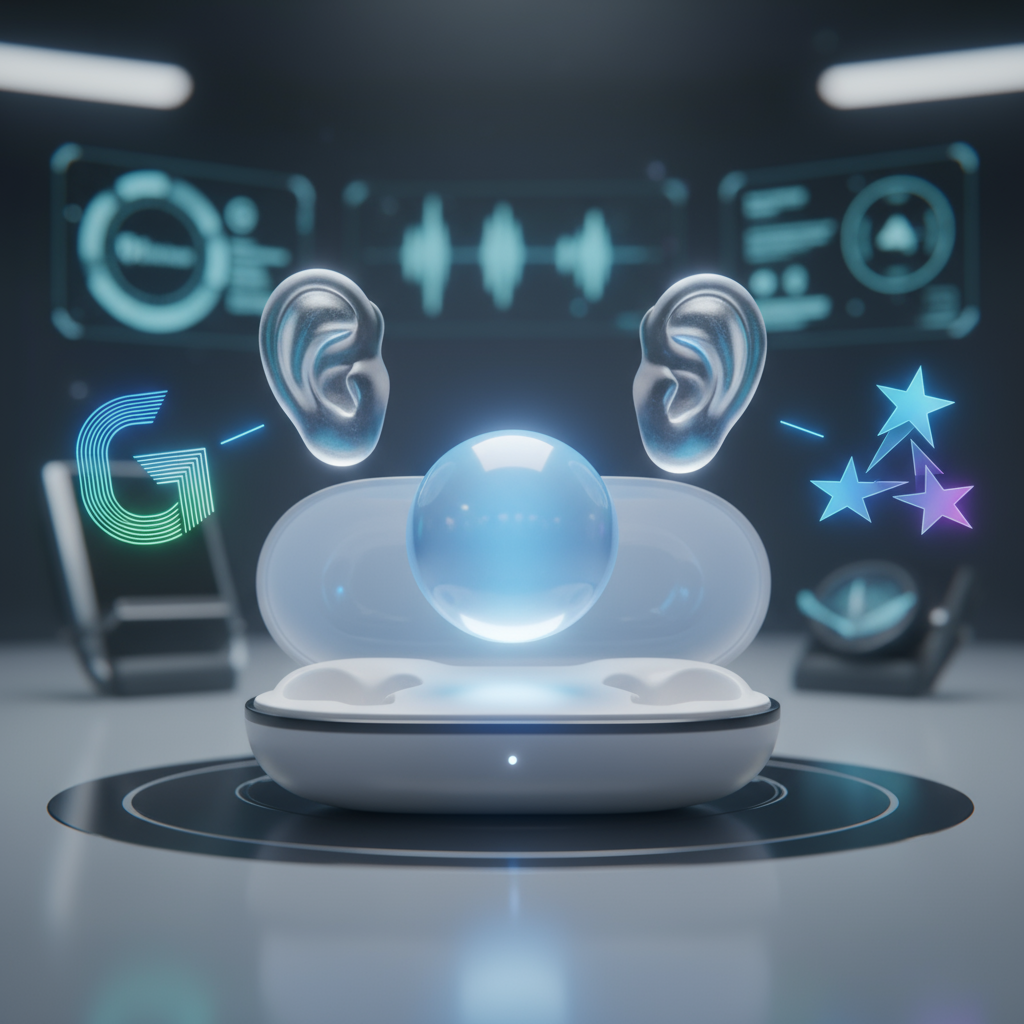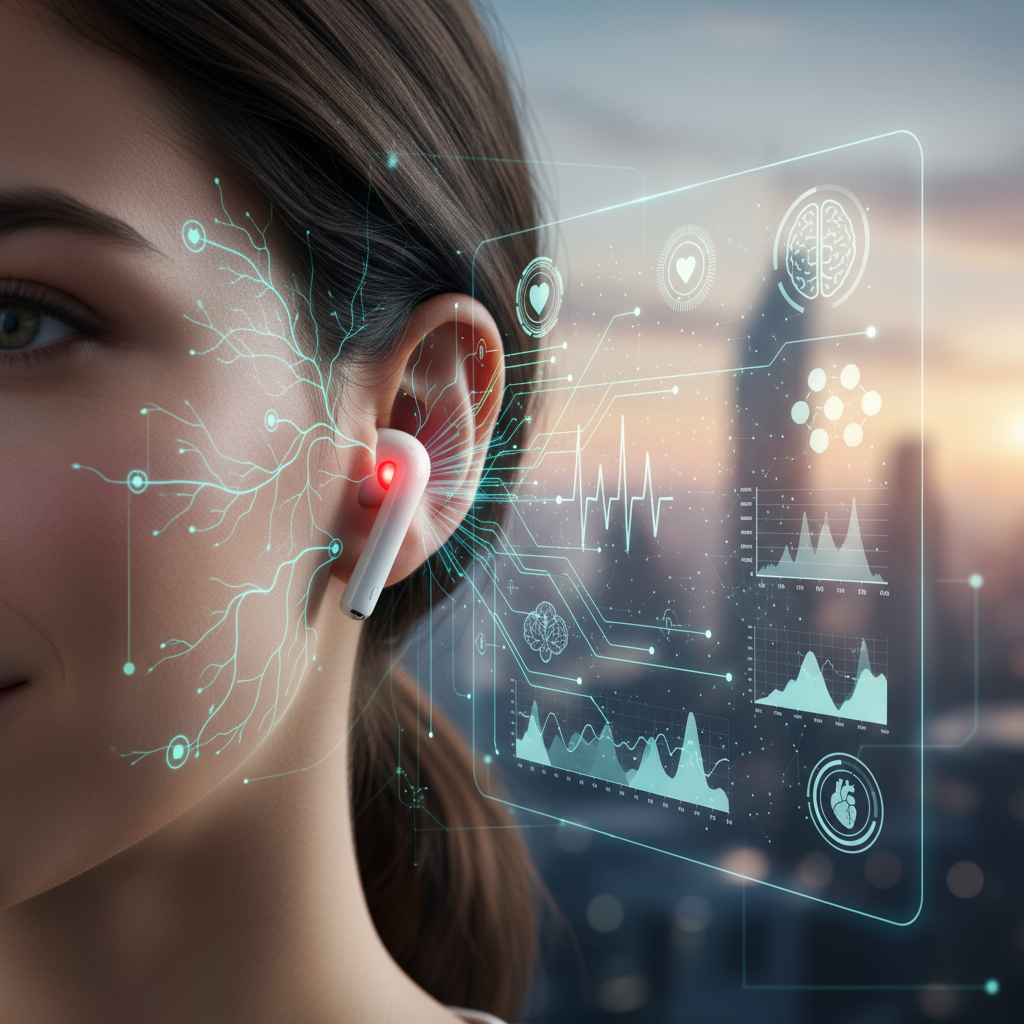The One AirPods Pro 3 Feature I Need Google and Samsung to Steal, STAT!

Picture this: you’re crushing a workout, music pumping, feeling the burn. You glance down at your wrist to check your heart rate, but your smartwatch is acting wonky. Or perhaps you’re simply tired of wearing another device just to track your fitness metrics. We’ve all been there. For years, wearables have promised a holistic view of our health, but often, that means juggling multiple gadgets. That’s why, when I heard about a rumored feature in the upcoming Apple AirPods Pro 3, my ears perked up (pun intended). And I have to say, it’s the one innovation I desperately want Google and Samsung to copy, like yesterday.
The buzz surrounding the AirPods Pro 3 includes a game-changing addition: a built-in heart rate sensor. Yes, you read that right. Your earbuds, the very devices you use for audio consumption, could soon be tracking your pulse directly from your ears during workouts. This isn’t just a gimmick; it’s a profound shift in how we approach wearable technology, offering unparalleled convenience and potentially more accurate data. Let’s delve into why this seemingly simple feature is such a big deal and why Android users deserve to experience it too.
The Genius of In-Ear Heart Rate Tracking: More Than Just Convenience

When we talk about heart rate tracking, most people immediately think of smartwatches or dedicated chest straps. While these devices have served us well, they come with their own set of limitations. Smartwatches, while convenient for many, can be bulky, get snagged during activities, and sometimes struggle to maintain consistent skin contact, especially during intense exercise. Chest straps, while offering superior accuracy, can be uncomfortable, restrictive, and frankly, a bit of a hassle to put on.
The beauty of in-ear heart rate tracking lies in its discreet integration and potential for superior data. The ear canal, being a relatively stable and vascularized area of the body, offers an excellent spot for photoplethysmography (PPG) sensors to measure blood flow. This means that your earbuds, already snugly nestled in your ears, are perfectly positioned to capture accurate heart rate data without requiring additional points of contact or separate devices. Imagine not having to worry about your watch strap being too loose or a chest strap chafing during a long run – your music and your metrics, all from one device.
Why Android Users Are Missing Out (and What We Need)
For years, Apple has enjoyed a reputation for seamlessly integrating hardware and software to create intuitive user experiences. The rumored in-ear heart rate sensor in the AirPods Pro 3 is another prime example of this philosophy. Meanwhile, Android’s ecosystem, while vast and diverse, often sees innovation trickle down or emerge in a more fragmented manner. This is precisely why Google and Samsung, the two titans of the Android world, need to step up and deliver a similar feature for their own earbud offerings.
Consider the Samsung Galaxy Buds Pro or Google Pixel Buds Pro. These are already premium true wireless earbuds, boasting excellent sound quality, active noise cancellation, and deep integration with their respective Android devices. Adding a heart rate sensor to these would transform them from mere audio devices into powerful, multi-functional fitness companions. Samsung already has a robust health platform in Samsung Health, and Google is consistently building out Fitbit’s integration. Merging in-ear heart rate data directly into these platforms would be a natural and incredibly valuable extension.
- Enhanced Workout Tracking: Imagine real-time heart rate zones displayed directly on your phone during a run, with audio cues delivered straight to your ears.
- Daily Health Insights: Beyond workouts, knowing your resting heart rate or getting a quick pulse check throughout the day becomes effortless.
- Reduced Device Clutter: One less thing to wear, charge, and worry about. Simplify your tech setup without sacrificing data.
- Potentially More Accurate Data: The ear’s vascular stability could lead to more consistent and accurate readings compared to wrist-based sensors, especially during high-intensity movements.
The Technical Hurdles and How to Overcome Them
Of course, integrating a heart rate sensor into a small form factor like an earbud isn’t without its technical challenges. Space is at a premium, battery life is crucial, and ensuring consistent accuracy across various ear shapes and movements requires sophisticated engineering. However, these are not insurmountable obstacles. Companies like Valencell have been developing ear-based biometric sensor technology for years, demonstrating its feasibility and accuracy.
Google and Samsung have the R&D budgets, the engineering talent, and the manufacturing capabilities to make this a reality. It’s not about reinventing the wheel, but rather adapting existing sensor technology to a new and incredibly convenient form factor. They could leverage their existing health platforms, like Samsung Health and Google Fit/Fitbit, to provide seamless data integration, analysis, and personalized insights. The infrastructure is largely there; it’s the hardware innovation that’s currently lacking in the Android earbud space.
The Future is Here, If We Demand It
The rumored heart rate sensor in the AirPods Pro 3 isn’t just about another feature; it’s about pushing the boundaries of what our everyday tech can do for us. It represents a move towards more integrated, less obtrusive health monitoring. We’re moving beyond just playing music; our earbuds are becoming truly smart assistants, capable of enhancing not just our audio experience but our well-being.
For too long, Android users have watched from the sidelines as Apple introduces innovations that redefine product categories. While the Android ecosystem excels in many areas, this is one where a clear leadership opportunity exists. Google and Samsung, it’s time to answer the call. Give us truly wireless earbuds that not only sound fantastic and block out the world but also actively contribute to our health and fitness journey. The future of wearable tech isn’t just on our wrists; it’s in our ears, and I for one, can’t wait for Android to catch up.
What do you think? Would an in-ear heart rate sensor sway your decision when buying your next pair of earbuds? Share your thoughts below!

